1. EXPATRIATES is the fourth novel in your Coming Collapse series. What inspired you to write about survivalism? Do you believe a real-life collapse is in our near future?
I believe that global economic instability is rising substantially, so the risk of economic collapse is greater than ever before. Along with instability comes the risk of civil wars, regional wars, and perhaps even a Third World War. It is indeed time for people to stock up, team up, and batten down the hatches.
2. EXPATRIATES is different from your other novels in that it mainly takes place outside the United States, in Australia. What drew you to writing about characters away from their native country?
There are now more than 5.25 million American citizens living overseas. I recognized that the stress that they would go through in the event of a global collapse would be tremendous. There is nothing quite like being stranded in a foreign country. And to be simultaneously cut off from any information about the well-being of your relatives would be devastating. So I saw this as both an opportunity to avoid any trodden ground from my previous novels, and as way to describe some times of truly deep drama.
But it is notable that one of the storylines in EXPATRIATES takes place in Central Florida, where there is also plenty of excitement.
3. Both survivalism and religion play a large role in EXPATRIATES. How do you see those two aspects balancing in the novel?
I consider them complimentary. Being well-stocked allows survivalists to dispense Christian charity. The deeper your larder, the more generous you can be.
4. Tell me a little bit about your writing process. How do you begin to formulate your plots and characters?
The plots of my novels are essentially extrapolations of current trends. The characters portray people from all walks of life. By showing both prepared and unprepared individuals, it allows me to show the breadth and depth of what is really required to pull through traumatic times of starvation, infrastructure, disruption, and severe shortages.
5. Are the personalities of the characters in EXPATRIATES modeled after survivalists and friends you know?
Many of the characters in my earlier novels were drawn directly on the personalities and backgrounds of my close friends. But in EXPATRIATES, I have fictionalized the lives of a few of my blog readers who I’ve never met in person. A few of these characters combine the personas of several people.
6. Some of the topics that arise in the novel, such as Islamic extremism and gun ownership could be construed as very controversial. Was this your intention?
My intent was not to stir up angst or animus, but I have never been one to shy away from speaking out on key societal issues. For instance, I have been very outspokenly pro-Christian, pro-Preparedness, pro-Gun Ownership, Anti-Racist, and Anti-Slavery. (Most Americans don’t realize that slavery is still being practiced in North Africa.) The rise of Radical Islam is quite troubling. And if observed from a multi-generational perspective, it is genuinely frightening. The right to keep and bear arms is the crucial cornerstone of the Bill of Rights. In effect, it is the right that insures all of our others. I believe that the current statist efforts to disarm the citizenry are not just misguided but inherently evil. It is as if they foolishly want to make us all victims. As I’ve been quoted before: The Second Amendment is about protecting your right to go deer hunting the same way that the First Amendment is about protecting your right to publish poetry.
7. You have mentioned in the past that you hope readers will learn as much as possible about survivalism through reading your novels. You have also written non-fiction guides in the past, but do you believe that fiction is a better medium to get your message across?
We live in an age of information overload. We are bombarded with television, radio, magazines, billboards, web pages, blogs, and text messages. In this era, most people won’t take the time to sit down and read a survival manual. But there is something captivating about novels. By weaving a lot of practical and tactical tips into a fictional storyline, I can keep people’s attention. Many readers tell me that they read my novel twice: The first time through for fun, and the second time highlighting passages and taking notes.
Now for the giveaway:
A copy of EXPATRIATES is reserved for the winner.
I can say there are many survival tips that can be learned from reading this new book. For a chance to win, just leave a comment below:
– What are some of your favorite survival/preparedness tips that you’ve most recently learned from a survival novel or book?
The winner* will be chosen at random on Wednesday, Oct. 9th at 8 pm Central.
THIS GIVEAWAY HAS ENDED.
*Winner will be notified via email. Winner must reply to email notification within 48 hours or another winner will be drawn.
Visit ReadyMade Resources:
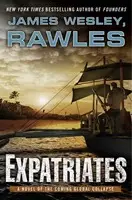






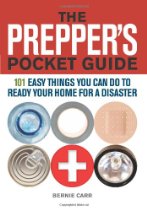
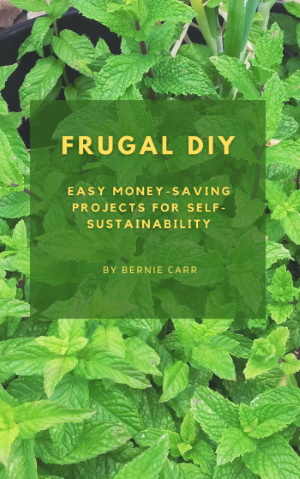
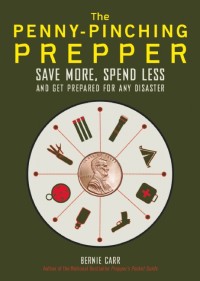
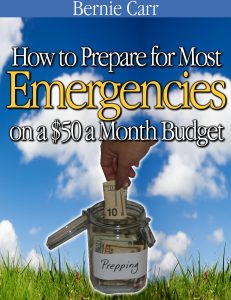
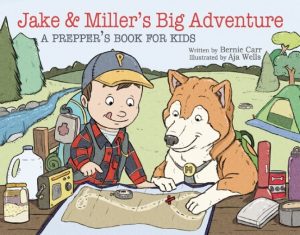
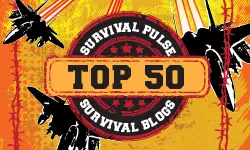
My first thoughts of getting prepared for and kind of disaster was because I read Mr Rawles book: Patriots. I have also read his book: Survivors. Since that time I have read many more books on preparedness, but most are boring compared to reading a novel that has a few different storylines. Mr Rawles has filled his novels with many practical ideas on preparedness woven into the story.
I have a short attention span and like the way Mr Rawles makes the stories entwine with each other and some eventually come all together. I will definitely get this latest book to read and see what other preparedness ideas he put in this novel and see if I will use it for my own preparedness plan.
I’m almost at the end of the book Shelter by Dan Ljoka. It was written in 1977. Everyone in the story is stuck in a well-prepared shelter after a nuclear war. One man and lots of women. Basically human nature can take some pretty twisty turns when there is no other civilization to keep things in check. The person you might think would be the most rational might turn on you.
Since I get almost all of my books from the used book store I can say that I’ve never seen any of James Wesley Rawles books there, so they must be keepers:)
I’ve read a number of survival books and learned a ton. Like the value of basics like coffee, eggs and bread in some of Joe Nobody’s books, or how important firearm maintence and prep is.
Recently I have been reading books about alaskan natives, prior to contact with the western culture which has been great for me as I live in Alaska. Lots of information about the traditional ways of living, many of these would be relevant in a post collapse state.
Are these novels of historical books?
or
Jen, these are fiction novels.
Yes, fiction books mostly. A non fiction book that is good is “Where the Sea Breaks it’s Back”. It’s a story of the first Russian’s in Alaska, which spend a winter on an Aleutian Island, many die of starvation and scurvy. It’s a good story of survival.
I am a big fan of William Johnstone’s Ash series. In one book Ben Raines is on his own and uses ordinary hand tools to create survival means and dispatch bad guys. The most important item I learned from survival books is the determined mind set to survive no matter what obstacles are presented.
I learned from Prepper’s March on using baking soda to tenderize meat.
Develop a skill. Never to late to learn something that might be useful in a barter situation such as my daughter is learning to cook with our cast iron pans over open flame, we both have tried our hand at hand washing laundry, what soap to use, tools we would need such as a mop wringer and scrub board. My sons have made some neat little sling bows We have studied on how to bring health back after illness using natural methods. Also at garage sales, dollar/bargain stores, clearance racks we will pick up cheap little items that others might use to barter. The book I pull from, a series by Terri Blackstock – Last Light series. I might add for our family that we see a need for a strong foundation, ours is in Christ. Build on that now, to be strong in the times it will be called on.
I got the kindle version and am almost 1/4 through it. Would like to have a hard bound copy. So far so good.
It was after reading “One Second After” that I began to take the need for prepping seriously. The main characters were so normal, and so like the people I know; it takes place in an area that I ‘m familiar with – in essence, it was totally relatable. I read the book over the course of a weekend, and remember going outside and marvelling how everything looked so normal. It is because of that book I became aware of how fragile, how tenuous our society really is, and how easily it can all be completely altered. As an apartment dweller, I can’t own/have no place to store many of the things that serious preppers have (propane stoves, solar panels, etc), but make sure to have food, water, batteries, personal hygiene items, etc, enough to last a good long while.
I’ve read everything JWR has written and eagerly look forward to his new one. Lots of imitators out there (hello Max Velocity!) but still only one Rawles. “One Second After” made me a prepper, Rawles’ “Patriots” series gave me a playbook.
One of the things I learned was to practice what you may be reading about. Add doing the skill or practice to reading about it. Don’t be afraid to get help or advice either because everyone needs it at times. We like to try out different things and keep preparing and learning.